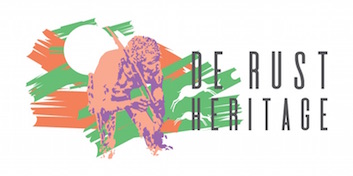The Issue of Heritage in De Rust
An Integrated Systems Approach to Heritage
A Brief Introduction
The issue of “Heritage” as a part of our modern world is often seen as being an add-on to other more important and pressing issues. However, this is incorrect as the issue of heritage is becoming more important globally, linked directly to the long term sustainability of communities through the creation of meaningful employment in such areas as eco-tourism and other related activities.
Managing Heritage at the Local Level
It is becoming increasingly clear that the issue of “Heritage Protection & Preservation” can only be properly initiated and managed at the local level by the communities involved. This is the reason why a voluntary organization such as the De Rust Heritage Conservation Association was originally formed in 2008 in order to create a sustainable future for the Village.
Heritage does not exist or succeed in a vacuum and is dependent on a successful, supportive environment in order to flourish. In the case of De Rust its charm lies not only in its location in the valley up against the Swartberg mountain range but also in its Victorian architecture from the early 1900’s. The overall ambiance of the Village lies in a combination of both of the above and the preservation of these unique aspects for future generations.
How to Effectively Manage Heritage and Environmental Issues
In order to manage the issues of heritage and environmental sustainability on a long term basis it is absolutely essential that community structures are in place to effectively manage the day-to-day issues on the ground. This was strongly recommended in a paper authored by Dr Stephen Townshend in 2006, who at that time was the CEO of Heritage Western Cape on the “Role of Conservation Bodies in Heritage Conservation” (see HWC Page on this website).
He strongly supported the role that voluntary organizations such as the De Rust Heritage Conservation Association should play in preserving and protecting both Heritage and related local resources. He also made the point that Heritage Western Cape was severely constrained in terms of both funding and resources as were the majority of the municipal authorities in the Western Cape. This situation continues today and is unlikely to improve in terms of better funding or resources in the future due to other demands on local and provincial government often being seen as more urgent and consequently being given more attention.
Townshend makes the point that Heritage Conservation organizations have to play a major role in the whole process of protection and identification of local heritage. He also makes a strong case in terms of the competency of municipalities to be improved and where they need to be assessed by Heritage Western Cape in terms of criteria including “availability of adequate staff, expertise, experience and administrative systems (the system should include explicit arrangements for consulting special interest groups like registered conservation bodies, for decision making and appeals)”.
Stephen Townshend also makes a valid point that heritage conservation bodies should be explicit in terms of their role in their communities. In this regard the De Rust Heritage Conservation Association is initially restricting its operations to the specific demarcated “Heritage” area of the village of De Rust plus farm houses and buildings older than 60 years old in the immediate district. At the same time it also believes in a “fully integrated approach to heritage” including the issue of long term sustainability through directly related issues such as conservation, eco-tourism and job creation in the larger De Rust community.
Managing on the Ground in De Rust
The De Rust Heritage Conservation Association was formed in 2008 and registered with Heritage Western Cape – Ref HWC/RCB/01/08 in June of that year. However, some years ago it as it was incorrectly informed that it was required to operate under a single Greater Oudtshoorn banner. It continued to operate independently but under the umbrella of Heritage Oudtshoorn Erfenis (HOE).
The De Rust Heritage Conservation Association has recently in conjunction with Heritage Western Cape resolved the situation regarding De Rust Heritage as a registered independent heritage body for the Village with a new registration HWC/DRCS/10/18. We will however, continue to participate in the Joint Heritage Permit Committee chaired by Johan Smit of HOE. This will reduce duplication for both heritage conservation bodies in the area and will facilitate better communication on all matters relating to heritage conservation in the Greater Oudtshoorn area.
Some Conclusions
The key to successful implementation of the above strategy is that all parties involved see this as an opportunity for progress rather than a threat. It is impossible for the Oudtshoorn Municipality to monitor and manage many of the above issues in terms of a shortage of resources both human and capital.
The De Rust Heritage Conservation Association is both capable and willing to play an even greater role in both heritage and related issues than in the past. However, this requires a better understanding from Municipal Officials in providing prompt feedback and action when requested to do so. We look forward to positive feedback and action from the Municipality to the above situation.
July, 2018
Ref: Paper by Dr Stephen Townsend – CEO OF Heritage Western Cape on “The Role of Heritage Conservation Bodies in Heritage Conservation - 2006”


